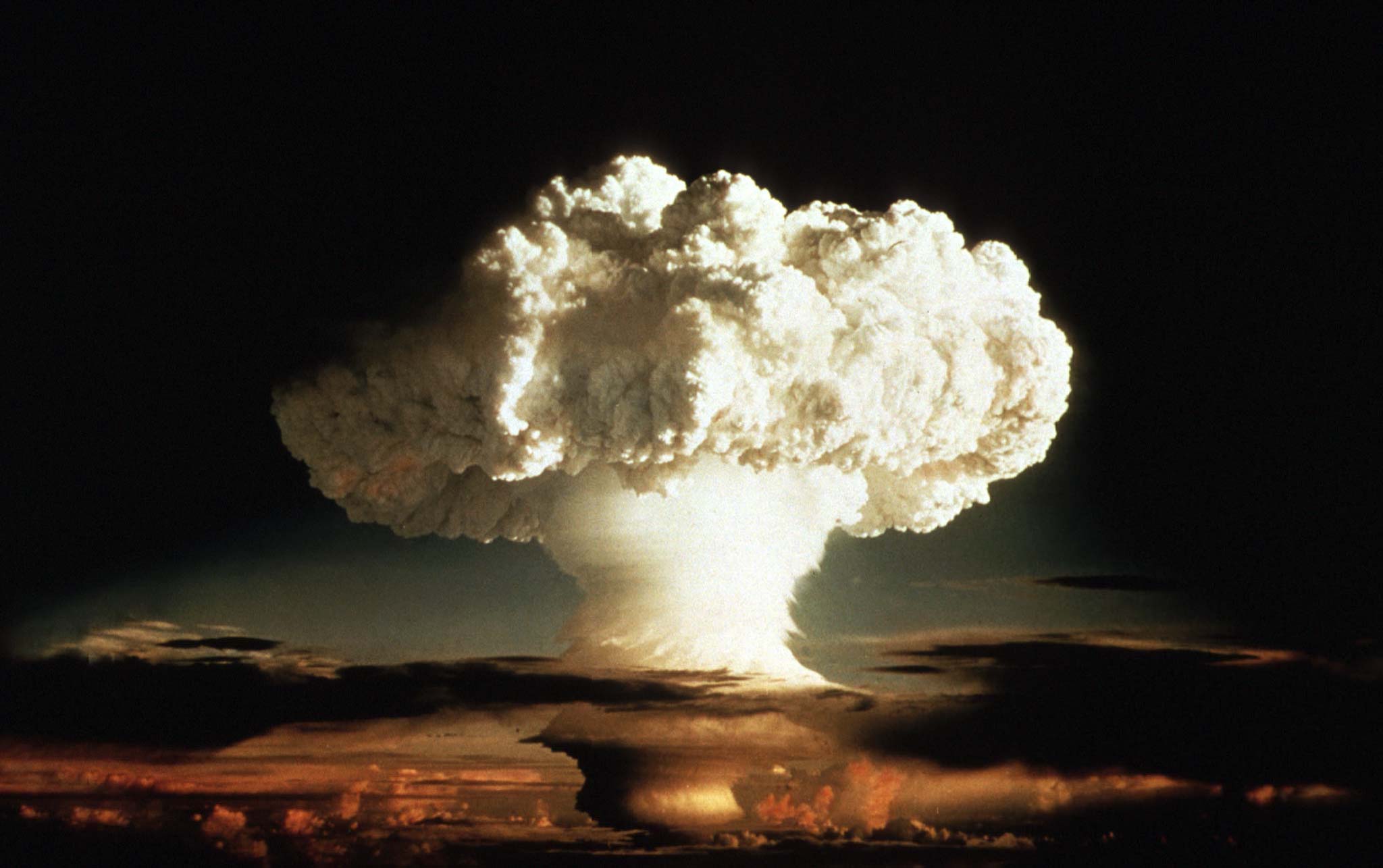North Korea's nuclear threat is real and terrifying
We can't just bury our heads in the sand. It's time to do something.


A free daily email with the biggest news stories of the day – and the best features from TheWeek.com
You are now subscribed
Your newsletter sign-up was successful
On Tuesday, The Washington Post released a devastating report about North Korea's growing nuclear and missile programs, confirming what many of us in the national security community have suspected for at least the last few years: Pyongyang now has the capability to miniaturize a nuclear warhead and place it on a missile. Oh, and not just any missile, but an intercontinental ballistic missile, or ICBM. You know, the type that can hit the U.S. homeland — the ones Pyongyang has been testing for the last month or so.
But from there it only gets worse. Kim Jong Un doesn't just have a dozen or so nuclear warheads, as most experts initially believed, but could have as many as 60.
Yikes.
The Week
Escape your echo chamber. Get the facts behind the news, plus analysis from multiple perspectives.

Sign up for The Week's Free Newsletters
From our morning news briefing to a weekly Good News Newsletter, get the best of The Week delivered directly to your inbox.
From our morning news briefing to a weekly Good News Newsletter, get the best of The Week delivered directly to your inbox.
Why didn't our elected leaders do something to stop this? This was predictable, but not inevitable.
You see, anyone who has ever studied North Korea, nuclear weapons, or international politics knew this day was coming. Experts have analyzed Pyongyang's budding missile program for decades — I was studying it as an undergraduate back in the late 1990s. Analysts have long theorized North Korea was working towards the capability to develop long-range missiles that could attack targets in the Asia-Pacific, Guam, Alaska, Hawaii, and eventually the U.S. homeland. Despite having an economy smaller than my tiny home state of Rhode Island, North Korea has assembled a dangerous nuclear arsenal and now has the means to strike within our borders.
While some prefer to stick their heads in the sand, we need to face this reality for what it is. One of the world's most vile abusers of human rights — a government that is essentially holding its 25 million citizens hostage — now has nuclear weapons and could kill millions of Americans. Some very well-reasoned and smart people disagree, still saying we have time to stop Kim Jong Un from getting the bomb, talk that frees us from confronting this challenge. But if we let our denial fester, this will only escalate.
For history tells us Kim will soon have an even more deadly weapon: a hydrogen bomb — essentially a nuclear weapon many times more powerful than the atomic bombs that were dropped on Hiroshima and Nagasaki during World War II — that can kill millions more people.
A free daily email with the biggest news stories of the day – and the best features from TheWeek.com
Imagine if Kim decided to do the unthinkable and fire such a weapon at Washington, D.C. If we assume U.S. missile defenses could not stop it, and the bomb, with say the power of 1,000,000 tons of TNT, or one megaton, was delivered right on top of the White House, publicly available simulators on the internet developed by experts conclude that more than half a million people would die — myself included, as I work two blocks away — and another 900,000 people would be injured. Run that same simulation with a nuclear device being dropped on the World Trade Center in New York City and the estimates go through the roof.
Now, to be clear, Kim does face one important challenge in turning such weapons into something he can use on the battlefield: Hydrogen bombs need to be miniaturized just like atomic bombs to go on the top of a missile — and that's no easy task. They are heavier than standard atomic devices, so Kim will need a more advanced missile that can carry a larger payload. Regrettably, North Korea is working on such a missile, the KN-08. Some even believe this could be the next missile North Korea tests.
Indeed, we shouldn't be shocked if, in the next six to 18 months, Kim rattles Asia with the ultimate of nuclear weapons. In fact, North Korea claimed early last year to have tested such a device. Most experts debunked the claims, arguing that Kim had instead developed what is called a boosted fission weapon — or in layman's terms, a more powerful atomic weapon. However, reports at the time coming out of South Korea said Kim was likely just "one level away from a hydrogen bomb."
Team Trump simply has no choice but to spring into action and do all it can to slow dramatically or stop this threat from becoming reality. Our best shot at this would be to do everything we can to take away the financial resources North Korea needs to develop, test, and deploy such a weapon. Considering the fact that the North Korean economy is one-third the size of Ethiopia's, taking away any capital the regime needs would make such a program harder and harder to fund — North Korea's population is already starving. The best way to do that is to go after any entities that are helping North Korea evade sanctions and raise money illegitimately, or those who might be directly or indirectly providing aid to Pyongyang's weapons programs. And that means China will be in Team Trump's crosshairs. And if the administration actually enforces the sanctions it signed onto last week, those could have a real impact.
We may yet be able to prevent Kim Jong Un from developing the most dangerous of all nuclear weapons. But to do so, we must take our heads out of the sand and stop denying the capabilities of North Korea's military machine. Pretending it can't happen is not only a bad idea — it all but guarantees it will happen.
Harry J. Kazianis is director of defense studies at the Center for the National Interest, founded by former U.S. President Richard M. Nixon.
